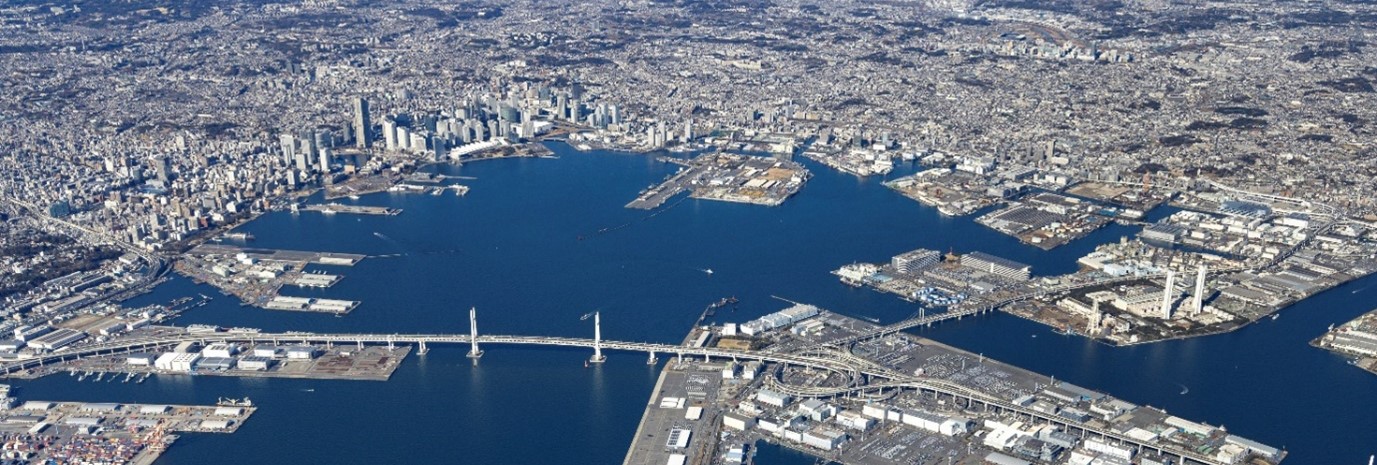Memorandum of Understanding Signed Regarding Data Center Project on the Grounds of JERA Thermal Power Station in the Waterfront Area of the Port of Yokohama 2025/10/03
The City of Yokohama and JERA Co., Inc. (“JERA”) have today signed a Memorandum of Understanding (MOU) related to deliberations aimed at realizing data center project on the grounds of JERA thermal power station located in the waterfront area of the Port of Yokohama.
In recent years, AI technology has evolved at a remarkable pace. As a fundamental technology underpinning society and industry, it is expected to make a significant contribution to Japan’s economic growth and sustainable social development. At the same time, the data centers that support the development of AI technology require enormous amounts of electricity. Reducing the environmental impact associated with electricity consumption—that is, achieving low-carbon or decarbonized electricity—is an issue that needs to be addressed.
JERA is Japan’s largest power generation company and, to provide solutions to such challenges facing data center businesses, has decided to consider the feasibility of attracting data center to JERA’s thermal power station in the waterfront area of the Port of Yokohama and offering them power and other services. The Port of Yokohama, where these thermal power stations are located, has developed as one of Japan’s leading international trading ports and plays an important role in supporting economic activity across a broad area, including the Tokyo metropolitan area and eastern Japan. The City of Yokohama is also moving forward with the Port and Harbor Decarbonization Plan for the Port of Yokohama, which it drew up together with private-sector businesses, and the formation of a Carbon Neutral Port in the Port of Yokohama.
Under this MOU, JERA—a leader in zero-emission initiatives in the energy sector—will collaborate with the City of Yokohama, which is working with a broad network of private companies to promote decarbonization in the waterfront area. Together, they aim to attract the development of a data center within the premises of a thermal power plant located in the Port of Yokohama. This initiative will prioritize responsible development that respects local characteristics and port operations, preserves the Port’s essential role as a logistics hub, and fosters harmony with the surrounding community. The partnership will also advance the use of low-carbon and decarbonized electricity to power the data center.
The City of Yokohama and JERA, by promoting the integration of power and telecommunications (“watt-bit collaboration”) in the waterfront area of the Port of Yokohama, will accelerate the establishment of the data center that are essential for upgrading industrial structure and contribute to achieving the efficient utilization of power infrastructure, the shift to low-carbon and decarbonized energy, and the strengthening of Japan’s industrial competitiveness.

About JERA Co., Inc.
JERA is a global energy leader and Japan’s largest power generation company focused on providing cutting-edge solutions to the world's energy issues. Established in 2015, the Company produces one-third of Japan’s electricity, and is one of the largest LNG buyers in the world. JERA has global reach and strength throughout the energy supply chain, from participation in LNG upstream projects and fuel procurement, through fuel transportation to power generation. In support of a responsible energy transition, JERA has committed to achieving net-zero CO₂ emissions from its domestic and overseas businesses by 2050.
https://www.jera.co.jp/
About Waterfront Areas (Port Areas)
A waterfront area (port area) refers to land areas adjacent to the water area of a port that serve a variety of roles in logistics, production, and recreation. Such areas are designated under the City Planning Act to ensure the integrated utilization of the water area and its adjoining land areas.
About Data Centers
Data centers are facilities that utilize information and communication technology to securely and efficiently store, process, and distribute large amounts of data. They are foundational to the operation of and services provided by corporations, public institutions, and cloud service businesses.
About the Port and Harbor Decarbonization Plan for the Port of Yokohama
A plan, drawn up by the City of Yokohama in March 2025, to promote effective port usage that contributes to decarbonization through public-private partnership. Produced based on deliberations by the Council of Waterfront Area Businesses Promoting the Decarbonization of the Port of Yokohama and comments solicited from the public, the plan outlines its basic policy, implementation period and targets, projects for the promotion of port decarbonization, and methods for evaluating progress.

